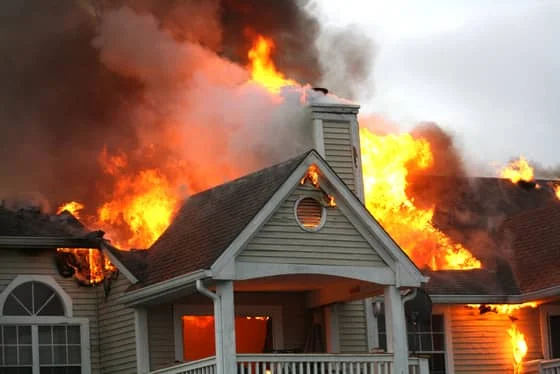Whether you’re a long-term homeowner, living in a rental property, or contemplating the complexities involved with the decision to sell a fire-damaged house, understanding the root causes of residential fires is a crucial aspect of home safety. Fires are not only a risk to our physical homes, but they also pose a significant threat to the safety and well-being of our families. Here, we address the most prevalent instigators of home fires and offer vital prevention tips to help you safeguard your dwelling against such calamities.
Cooking
Cooking is the leading cause of home fires and injuries. It often starts with unattended kitchens, where a moment’s distraction can escalate into a severe fire.
Prevention Tips:
- Never leave your cooking unattended, even for a short period.
- Turn off appliances immediately after use.
- Keep combustibles like oven mitts, wooden utensils, food packaging, and towels away from the stove and oven.
Electrical Issues and Appliances
Residential fires can also stem from electrical issues such as faulty wiring, overburdened power outlets, or malfunctioning electrical appliances.
Prevention Tips:
- Regular inspections and prompt repairs of electrical wiring reduce risk.
- Avoid overloading power outlets and use appliances as intended.
- Ensure that all electrical appliances have space for air to circulate around them to prevent overheating.
Heating
Heaters, especially portable ones, are common conveniences during colder months, but they can be significant fire hazards when left unattended or placed near flammable materials.
Prevention Tips:
- Keep flammable objects at least three feet away from heating equipment.
- Never leave your heaters on unattended, and make sure to turn them off before going to sleep.
Fire Prevention in Every Room
A comprehensive approach to fire prevention extends beyond the kitchen and includes keeping an eye on other potential fire sources throughout the house.
Prevention Tips:
- Install and regularly test smoke detectors in every room.
- Have a clear escape plan and ensure all family members are familiar with it.
- Keep fire extinguishers accessible and train all capable household members on their proper use.
By recognizing the common causes of residential fires and following these prevention tips, you can significantly decrease the odds of a fire occurring in your home. Still, accidents can happen, and if you find yourself in the unfortunate position of selling your fire-damaged house, know that this doesn’t mark the end of your homeownership path. Restoration and resale are possible with the right resources and support.
Fire safety is as much about prevention as it is about having a prepared response plan. Take action today to ensure your home is as safe as possible, and remember, the phrase “better safe than sorry” holds no truer than in matters of fire-prevention.
Do You Have a Fire-Damaged House?
Another way to reduce stress is to sell your fire-damaged house to We Buy Fire Damaged Houses. You’ll avoid the often stressful repair process and can move on from the house fire faster.
We Buy Fire Damaged Houses pays all cash and buys fire-damaged houses in “as is” condition. To see if your burned house qualifies for a free quote, fill out the form below.

